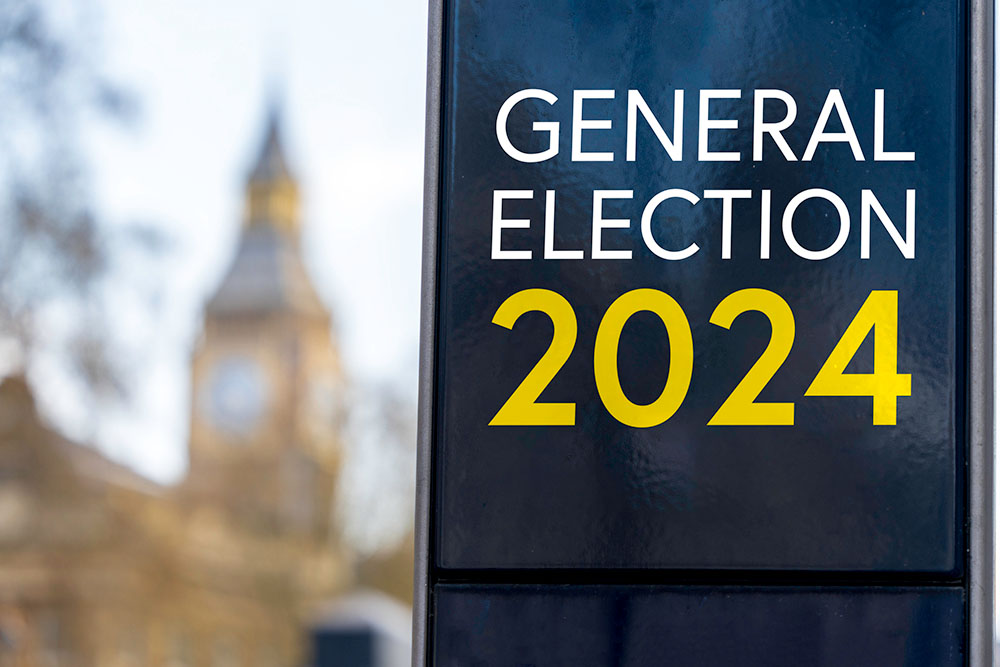Bure Valley Group is an investment introducer platform which links successful investors with exciting, innovative UK startups seeking funding. This content is for information purposes only and should not be taken as financial or investment advice.
The 2024 general election is scheduled for this summer on 4 July. Political parties are revealing their manifestos and campaign promises, with taxation an issue high on the media agenda. Below, our team at Bure Valley Group explores some of the key announcements so far and what the implications could be for early-stage investors.
We hope these insights are useful to you. To learn more about our EIS projects and other early-stage opportunities, visit our portfolio page. For enquiries regarding our latest projects and funding, you can reach us via:
+44 160 334 0827
June 2024: what we know so far
The UK currently faces its highest tax burden since the Second World War. This is a fact that Labour keeps reminding voters to draw criticism to the governing Conservatives (the party which is traditionally “low-tax”). This situation has piled pressure on households, which have already been struggling with higher living costs since 2021 due to soaring inflation.
As such, many voters – even longstanding “Tory loyalists” – have stated their intention to punish the government at the polls. Political analysts are widely predicting a Conservative wipeout and a huge Labour majority unless events take a dramatic new turn (e.g. due to a harmful gaffe by shadow cabinet members).
If voters are hoping that a new government will result in lower taxes, they may be in for an unpleasant surprise. The IFS (Institute for Fiscal Studies) has argued strongly that tough choices will face the next government, whoever wins.
This is largely due to the nation’s soaring national debt (now at 98% of GDP) and a widening fiscal deficit, which lead to high debt servicing costs. Higher interest rates have exacerbated this in recent years. This is spending that could be dedicated elsewhere—e.g., education, defence or infrastructure investment—but is currently “stuck” in debt obligations.
As such, even a new Labour government will face huge pressure to balance the books. This could take the form of higher taxes, cuts to public spending or even both.
Which taxes could go up?
The Reform Party has promised sweeping tax cuts, including scrapping VAT on energy bills, cutting fuel duty, abolishing the Inheritance Tax (IHT) and lowering corporation tax. However, how these commitments would be funded is unclear.
The Conservatives have tried to position themselves as the “tax-cutting party” by promising further reductions to National Insurance (NI), but the message does not seem to be swaying voters back into the fold.
Labour have focused their tax pledges on three main areas: windfall taxes on energy companies, tackling tax avoidance (which includes scrapping “non-dom” status) and scrapping the VAT exemption on private schools. Keir Starmer (the leader) has stated that there will be no increases to income tax, NI or VAT.
However, analysts have pointed out the Labour seem to have left the door open to changing capital gains tax (CGT) and council tax. The Party has also pledged a National Wealth Fund (NWF), aiming to invest £7.3bn to “accelerate the green transition” and “help Britain re-industrialise”.
Positive noises have been made by Labour towards open banking and open finance. The “triple lock” on the State Pension should be retained. A new regulatory innovation office for the financial sector could be established. Corporation tax would be kept at 25%. The business rates system could be replaced. Capital investment allowances will be retained.
What does this mean for investors?
There does not appear to be any immediate cause for alarm. Early-stage investors can take comfort in the fact that no major party has promised significant changes to venture capital (VC) schemes, such as the Enterprise Investment Scheme (EIS) and Seed Enterprise Investment Scheme (SEIS). Indeed, the former – and VCTs – were recently reaffirmed by Chancellor Jeremy Hunt, who extended the “sunset clause” to April 2035.
With that said, new tax announcements are still arrived from the campaign trail. It is possible that the current manifestos and political pledges will evolve before 4 July. As such, investors shoud keep a close ear to the ground to stay as nimble as possible with their plans for tax, investments and savings.
Getting guidance from a financial adviser might be helpful, since a professional can bring a level head to any new announcements which may lead other investors to panic irrationally (possibly leading to costly, impulsive decisions which they later regret.
Rules for pensions, ISAs and VC schemes could change in the coming years – especially as the government faces pressures to balance the nation’s books and boost economic growth and stability. Successful investors can be a tempting scapegoat for governments (even right-leaning ones). Again, consider financial advice – and insights from other cool-headed investors, such as those in our exclusive network – to retain agility and flexibility in your portfolio. This could help you adapt in the future, if new circumstances and tax laws require it.
Invitation
Interested in finding out more about the exciting startup projects we have on offer to investors here at Bure Valley Group?
Get in touch today to start a conversation with our team and discuss some of the great investment memorandums we have available here:
+44 160 334 0827


